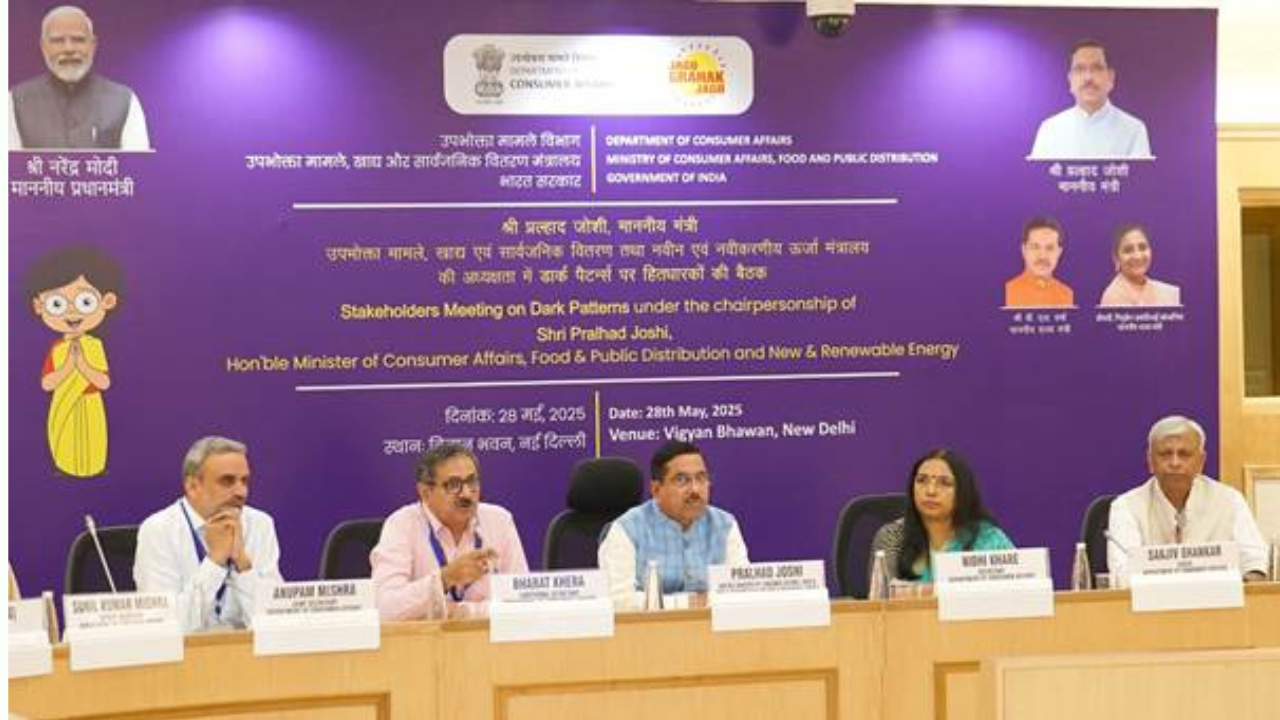The Department of Consumer Affairs, Government of India, convenes a meeting to bring together key stakeholders—including major e-commerce companies, industry associations, voluntary consumer organizations, and representatives from National Law Universities—for a focused dialogue on curbing deceptive practices in the digital marketplace. It has been conducted in light of increasing consumer complaints on the National Consumer Helpline.
The consumers of today are vigilant, informed, and increasingly aware of their rights—they will not tolerate deceit, said the union minister while chairing a high-level stakeholder meeting here today to address the growing concern around dark patterns in digital commerce. To address the issue, he directed all major e-commerce companies to conduct regular internal audits aimed at identifying and eliminating dark patterns from their platforms.
Proactive Measures Needed
“Companies must not wait for the Central Consumer Protection Authority (CCPA) to intervene. They should proactively recognize and remove these deceptive practices before notices are issued. This is not just regulatory compliance—it’s about building trust with your consumers,” he stated.
To read about the latest predictions on the performance of Indian telcos and the upcoming tariff hike, click here.
He added that innovative ideas from the Dark Patterns Buster Hackathon 2023 helped the department, in partnership with IIT BHU, develop three key consumer protection tools: the Jagriti App, the Jago Grahak Jago App, and the Jagriti Dashboard.
Design Elements Enabling Coerce Choices
Smt. Nidhi Khare, Secretary of the Department of Consumer Affairs, set the tone by highlighting the alarming rise of dark patterns—design elements used on websites and apps to mislead or coerce users into making unintended choices. These practices, she noted, undermine consumer autonomy, manipulate purchasing behavior, and have a detrimental impact on consumer trust and welfare.
Which companies were there?
The representatives of the major e-commerce companies 1mg.com, Airbnb, Amazon, Apple, Zepto, Booking.com, Ola Electric, Tata Digital, Adidas India, Samsung, Ikigai Law, Indigo Airlines, Ixigo, MakeMyTrip, Mastercard, Meta, Netmeds, Namma Yatri, PharmEasy, Reliance Retail, Rapido, Shiprocket, Snapdeal, Swiggy, Thomas Cook, Uber, WhatsApp, Yatra, Zomato & Blinkit, Flipkart, Google, Justdial, ONDC, and Paytm were present during the meeting.
To read about the upcoming New Telecom Policy 2025, click here!
Further, the major industry associations CAIT, CCI, FICCI, NASSCOM, PHDCCI, and Retailers Association of India, along with Voluntary Consumer Organizations and National Law Universities, attended the meeting.
The high-level meeting concluded with a firm call to action, reinforcing the government’s commitment to safeguarding digital consumers and urging all stakeholders to foster a transparent, ethical, and user-centric online ecosystem. The department emphasized its support for businesses in implementing the guidelines and welcomed ongoing collaboration with industry, academia, and civil society to ensure a fair and inclusive digital marketplace in India.




